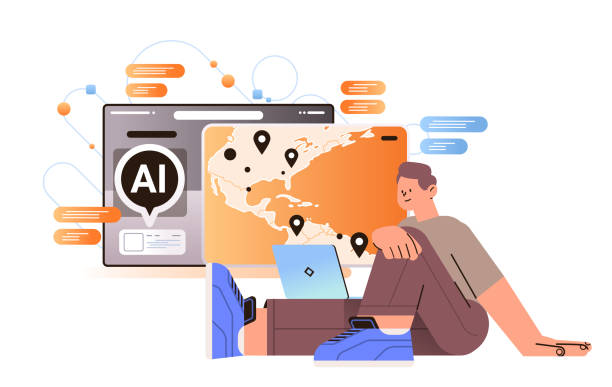Travel planning used to be a time-consuming task—researching destinations, comparing flights, booking hotels, and creating an itinerary could take hours, if not days. But in recent years, artificial intelligence (AI) has revolutionized the process. Today, AI-powered platforms and apps can design personalized itineraries, suggest activities, and even predict travel disruptions.
Here’s a closer look at how AI is transforming the way we plan trips in 2025 and beyond.
1. Personalized Travel Recommendations
One of the biggest advantages of AI in travel is its ability to provide personalized suggestions. Instead of generic recommendations, AI systems analyze your preferences, budget, and past travel history to suggest the perfect options.
- If you’re a foodie, AI may recommend top-rated restaurants in your destination.
- Adventure seekers might get suggestions for hiking trails or water sports.
- Families can receive tailored recommendations for kid-friendly activities.
This level of personalization makes trip planning faster and more enjoyable.
2. Smarter Flight and Hotel Bookings
AI-driven booking engines are making it easier to find the best deals on flights and accommodations.
- Dynamic pricing tools predict when ticket prices will rise or fall, helping travelers book at the right time.
- Chatbots on travel websites can instantly answer questions, suggest alternatives, and even complete bookings.
- Virtual travel assistants like Google’s Bard or ChatGPT-based tools simplify comparisons by pulling data from multiple sources.
The result? Travelers save time and money while booking with more confidence.
3. AI-Powered Itinerary Planning
Gone are the days of juggling multiple tabs to plan a day-by-day schedule. AI trip planners can create custom itineraries in seconds.
- Suggest attractions based on your interests and available time.
- Map routes for efficient travel between locations.
- Adjust itineraries on the go if your plans change.
Some apps even integrate real-time weather updates, so if rain is expected, your outdoor tour might be swapped for a museum visit.
4. Predictive Travel Assistance
AI doesn’t just help before your trip—it also assists during travel. Predictive systems can:
- Warn you about flight delays or cancellations in advance.
- Suggest alternative routes when traffic is heavy.
- Recommend less crowded tourist spots to avoid long lines.
This proactive support reduces stress and keeps your trip running smoothly.
5. Language Translation and Communication
One of the biggest barriers in international travel has always been language. AI translation tools now make it easy to communicate anywhere in the world.
- Apps like Google Translate use AI to provide real-time voice translations.
- Smart devices can translate menus, signs, and even conversations instantly.
- This helps travelers feel more confident when exploring new cultures.
With AI breaking down language barriers, destinations that once felt intimidating are now more accessible.
6. Enhancing Safety and Security
Safety is a top priority for any traveler, and AI helps here too.
- AI tools can track local safety alerts and notify you of risks like natural disasters or political unrest.
- Fraud detection systems in booking platforms reduce the risk of scams.
- Smart security apps can share your real-time location with family or emergency contacts.
These advancements give travelers greater peace of mind.
7. Sustainable Travel Planning
More travelers are looking for eco-friendly options, and AI is making it easier to plan sustainable trips.
- Suggesting airlines with lower carbon emissions.
- Recommending eco-certified hotels and restaurants.
- Helping plan itineraries that reduce unnecessary travel distances.
By highlighting greener choices, AI supports responsible tourism.
Final Thoughts
AI is no longer just a futuristic concept—it’s a game-changer in the travel industry. From personalized recommendations and smart bookings to real-time assistance and sustainability, AI is reshaping the way we plan and experience trips.
For travelers, this means less stress, more savings, and richer, more personalized adventures. For the travel industry, it’s a chance to create stronger connections with customers and stay ahead of the curve.
As AI continues to evolve, planning a trip in the future might be as simple as telling your digital assistant: “Plan me a one-week beach vacation with cultural activities and budget-friendly dining.” And within seconds, your perfect itinerary will be ready. And while technology makes travel easier, don’t forget the importance of mindful choices—our guide on sustainable travel tips for modern travelers shows how to protect the planet while enjoying unforgettable adventures.

